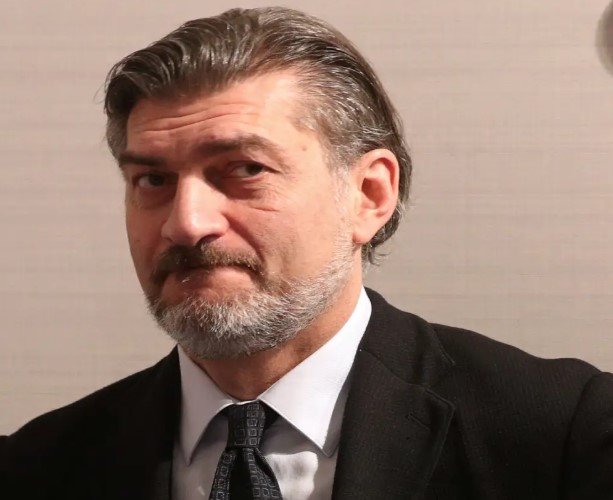Tensions in Georgia hit a new high after the election of Mikheil Kavelashvili as president. His victory comes at a time when the country is in political turmoil, with protests intensifying over a shift away from European integration.
A Major Shift in Georgia’s Political Landscape
On December 14, 2024, Georgia’s lawmakers elected Mikheil Kavelashvili as the country’s new president, sparking a firestorm of protests and drawing a sharp divide between government supporters and critics. Kavelashvili, a former soccer player, is known for his staunchly anti-Western views, making his election a highly controversial move, especially at a time when Georgia’s EU accession talks have been abruptly halted.
This unexpected decision marks a dramatic pivot in Georgia’s political landscape, where the ruling Georgian Dream party has been increasingly distancing itself from the West. Kavelashvili’s election to the presidency follows the recent suspension of Georgia’s European Union accession talks, which have left many Georgians in shock. For years, EU membership was a cherished goal for the country, one embedded in its constitution.

Opposition Protests Flood the Streets
The decision to elect Kavelashvili has sparked massive protests across the country. Thousands gathered outside the parliament building in Tbilisi on the day of the vote, many of whom waved red cards and mocked the new president with playful references to his soccer career. The protests, organized by opposition parties and civil society groups, are a response to what they see as a betrayal of Georgia’s pro-Western aspirations.
The protests were not only an expression of dissatisfaction with Kavelashvili’s election, but also a condemnation of the government’s broader political shift. Georgian citizens have voiced outrage over the government’s abrupt decision to freeze EU accession talks until 2028, a move that many believe undermines the country’s future and its aspirations to align more closely with Europe.
Key Points from the Protests:
- Protestors see Kavelashvili’s election as a step backward toward Soviet-era ties.
- Opposition parties continue to reject the legitimacy of the Georgian Dream-led government.
- Demonstrations have involved clashes with police, with hundreds arrested.
Kavelashvili’s Controversial Views
Mikheil Kavelashvili’s political views have long been a point of contention. A vocal critic of Western influence, he has raised concerns about alleged foreign interference, especially regarding intelligence agencies pushing Georgia into conflict with Russia. These remarks have been perceived as dangerously conspiratorial by many, given the country’s complex history with its northern neighbor.
Kavelashvili’s hardline rhetoric aligns with the goals of Georgia’s ruling Georgian Dream party, led by billionaire Bidzina Ivanishvili, who has been moving the country closer to Russia in recent months. Critics argue that this new direction is harmful to Georgia’s long-term stability, especially as Russia continues to back separatist movements in Georgia’s breakaway regions.
Kavelashvili’s Political Record:
- Leader of People’s Power, an anti-Western faction of the Georgian Dream party.
- Co-author of a controversial “foreign agents” law, targeting organizations with foreign funding.
- Strong pro-Russia stances, calling for closer ties with Moscow.
A Divided Government and President
The election of Kavelashvili was held amid claims of electoral fraud, as opposition parties had boycotted the parliament after the disputed October elections. Despite this, the Georgian Dream party dominated the parliamentary vote, with 224 electors casting their votes in favor of Kavelashvili. The result was predictable given that he was the only candidate nominated.
Outgoing President Salome Zourabichvili, a firm supporter of European integration, has not taken Kavelashvili’s election lightly. Zourabichvili, who has sharply criticized the Georgian Dream’s political maneuvering, has vowed to stay in office after her term expires, citing her belief that the election of Kavelashvili is a “mockery of democracy.”
Zourabichvili’s stance has further fueled political polarization in the country. The opposition has rallied behind her, declaring that they will continue to consider her the legitimate president. However, Kavelashvili’s inauguration is set for December 29, 2024, with expectations of heightened tensions surrounding the event.
The EU’s Growing Concern
Georgia’s recent political developments have raised alarms in Brussels and other Western capitals. The EU had long seen Georgia as one of its most promising neighbors, but the current trajectory is worrying. The Georgian government’s crackdown on protests, the controversial foreign agents law, and a shift toward Russia have drawn sharp criticism from European leaders.
In response to Georgia’s apparent foreign policy pivot, the EU has threatened sanctions, a move that could further isolate Georgia on the international stage. Western leaders are also expressing concern over the authoritarian tendencies emerging in Tbilisi, with some drawing comparisons to Russia’s own political system under Vladimir Putin.
EU’s Stance on Georgia:
- The European Union has expressed deep concern over the suspension of EU talks.
- Western diplomats warn that Georgia risks losing its pro-European status.
- Sanctions could be imposed if the political crackdown continues.
Tensions have only escalated as protests against the government’s actions intensify. Georgia, once a symbol of democracy and progress in the post-Soviet world, now faces a political crisis that could shape its future for years to come.
